第164章
"Well,not too popular,I smiled."I think it would do me good to use my mind,to chew on something.Besides,you can help me over the tough places."He returned that afternoon with two books.
"I've been rather fortunate in getting these,"he said."One is fairly elementary.They had it at the library.And the other--"he paused delicately,"I didn't know whether you might be interested in the latest speculations on the subject.""Speculations?"I repeated.
"Well,the philosophy of it."He almost achieved a blush under his tan.
He held out the second book on the philosophy of the organism."It's the work of a German scientist who stands rather high.I read it last winter,and it interested me.I got it from a clergyman I know who is spending the winter in Santa Barbara.""A clergyman!"Strafford laughed."An 'advanced'clergyman,"he explained."Oh,a lot of them are reading science now.I think it's pretty decent of them."I looked at Strafford,who towered six feet three,and it suddenly struck me that he might be one of the forerunners of a type our universities were about to turn out.I wondered what he believed.Of one thing I was sure,that he was not in the medical profession to make money.That was a faith in itself.
I began with the elementary work.
"You'd better borrow a Century Dictionary,"I said.
"That's easy,"he said,and actually achieved it,with the clergyman's aid.
The absorption in which I fought my way through those books may prove interesting to future generations,who,at Sunday-school age,when the fable of Adam and Eve was painfully being drummed into me (without any mention of its application),will be learning to think straight,acquiring easily in early youth what I failed to learn until after forty.
And think of all the trouble and tragedy that will have been averted.It is true that I had read some biology at Cambridge,which I had promptly forgotten;it had not been especially emphasized by my instructors as related to life--certainly not as related to religion:such incidents as that of Adam and Eve occupied the religious field exclusively.I had been compelled to commit to memory,temporarily,the matter in those books;but what I now began to perceive was that the matter was secondary compared to the view point of science--and this had been utterly neglected.As I read,I experienced all the excitement of an old-fashioned romance,but of a romance of such significance as to touch the very springs of existence;and above all I was impressed with the integrity of the scientific method--an integrity commensurate with the dignity of man--that scorned to quibble to make out a case,to affirm something that could not be proved.
Little by little I became familiar with the principles of embryonic evolution,ontogeny,and of biological evolution,phylogeny;realized,for the first time,my own history and that of the ancestors from whom Ihad developed and descended.I,this marvellously complicated being,torn by desires and despairs,was the result of the union of two microscopic cells."All living things come from the egg,"such had been Harvey's dictum.The result was like the tonic of a cold douche.Ibegan to feel cleansed and purified,as though something sticky-sweet which all my life had clung to me had been washed away.Yet a question arose,an insistent question that forever presses itself on the mind of man;how could these apparently chemical and mechanical processes,which the author of the book contented himself with recording,account for me?
The spermia darts for the egg,and pierces it;personal history begins.
But what mysterious shaping force is it that repeats in the individual the history of the race,supervises the orderly division of the cells,by degrees directs the symmetry,sets aside the skeleton and digestive tract and supervises the structure?
I took up the second book,that on the philosophy of the organism,to read in its preface that a much-to-be-honoured British nobleman had established a foundation of lectures in a Scotch University for forwarding the study of a Natural Theology.The term possessed me.Unlike the old theology woven of myths and a fanciful philosophy of the decadent period of Greece,natural theology was founded on science itself,and scientists were among those who sought to develop it.Here was a synthesis that made a powerful appeal,one of the many signs and portents of a new era of which I was dimly becoming cognizant;and now that I looked for signs,I found them everywhere,in my young Doctor,in Krebs,in references in the texts;indications of a new order beginning to make itself felt in a muddled,chaotic human world,which might--which must have a parallel with the order that revealed itself in the egg!Might not both,physical and social,be due to the influence of the same invisible,experimenting,creating Hand?
My thoughts lingered lovingly on this theology so well named "natural,"on its conscientiousness,its refusal to affirm what it did not prove,on its lack of dogmatic dictums and infallible revelations;yet it gave me the vision of a new sanction whereby man might order his life,a sanction from which was eliminated fear and superstition and romantic hope,a sanction whose doctrines--unlike those of the sentimental theology--did not fly in the face of human instincts and needs.Nor was it a theology devoid of inspiration and poetry,though poetry might be called its complement.With all that was beautiful and true in the myths dear to mankind it did not conflict,annulling only the vicious dogmatism of literal interpretation.In this connection I remembered something that Krebs had said--in our talk about poetry and art,--that these were emotion,religion expressed by the tools reason had evolved.Music,he had declared,came nearest to the cry of the human soul....